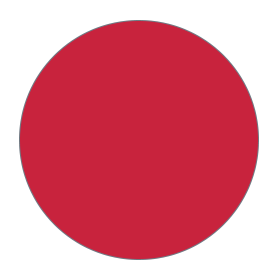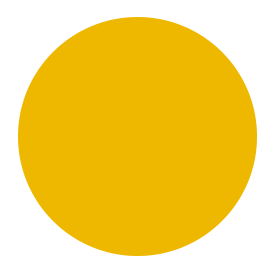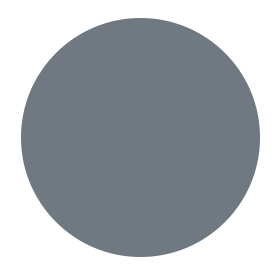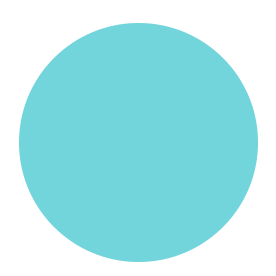The colorful palette for the University of Missouri–St. Louis brand is a vibrant spectrum. This wide range of colorways provides a multitude of usages that is flexible and resourceful.
Primary Colors
The University uses both a primary and a secondary color palette. The primary colors should be used predominantly on materials, while the secondary color palette should be used sparingly as accents to complement the primary palette. When possible, use the Pantone Matching System value (PMS 200c). If spot colors are not available, only the CMYK values listed on this page should be used.
Depending on production technique and printing substrate, your printer may suggest using a different ink color to ensure the closet match in the final printed product to the PMS color chips.
Tints and Shades
No values other than those listed may be used. Tints and shades of these colors are not permitted.

Triton Red
Pantone: 200c
CMYK: 17 100 87 7
RGB: 186 12 47
LAB: 43 61 33
HEX: #ba0c2f

Triton Gold
Pantone: 124c
CMYK: 0 29 100 1
RGB: 234 171 0
LAB: 81 14 80
HEX: #eaab00
Do:
- Use at least 10% Triton Red on all designs.
- Make sure to use proper color breakdowns for specific uses.
- Use colors from the primary color palette as the main colors in a design.
- Use colors from the secondary color palette for accents only.
- Make sure text and background color contrast meet WCAG 2.1 AA guidelines for web and digital designs.
- Omit Triton Red on any design.
- Eyeball or guess at a specific color.
- Use colors from the secondary color palette as primary colors.
Secondary Colors
Although our color system relies heavily on Triton Red and Triton Gold, we understand the need to complement that palette with a robust set of additional colors. To meet that need, we’ve developed a full set of colors to help tailor our pieces to a variety of audiences and messages. This additional secondary palette reflects our campus – drawing hues from our man-made and natural environments.
Use these colors sparingly. When bringing in secondary colors, take extra care not to create designs that don’t reflect the UMSL brand – or worse, that appear to represent another institution. Under no circumstances should any of them become the predominant color for a school, department, institute or center.
Tints and Shades
No values other than those listed may be used. Tints and shades of these colors are not permitted.

Brick
Pantone: 188c
CMYK: 29 93 67 41
RGB: 118 35 47
HEX: #76232f

Golden
Pantone: 1215c
CMYK: 1 14 65 0
RGB: 251 216 114
HEX: #fbd872

Blossom
Pantone: 158c
CMYK: 0 71 98 0
RGB: 255 106 20
HEX: #ff6a14

Silver
Pantone: Cool Gray 1c
CMYK: 14 11 12 0
RGB: 217 216 214
HEX: #d9d8d6

Steel
Pantone: 431c
CMYK: 67 52 44 17
RGB: 93 102 111
HEX: #5d666f

Grass
Pantone: 368c
CMYK: 59 1 100 0
RGB: 129 190 33
HEX: #78be21

Millennium
Pantone: 325c
CMYK: 54 0 20 0
RGB: 99 205 212
HEX: #63cdd4

Water
Pantone: 295c
CMYK: 100 63 0 67
RGB: 0 40 88
HEX: #002853